The brief story of the “rainbow country” (background)
South Africa is, as its intrinsic name states, the southernmost country in the continent. Its costs face two oceans and are distinguished by “Mediterranean” climate and green areas composed predominantly by fynbos biome, an endemic flora, its diverse wildlife and vibrant cultures residing within the modern nation-state.
The picture-book scenery attracts almost 15 million tourists yearly accounting for 3,7% of overall national GDP in 2019 according to the pre-pandemic data of the Department of Statistics of South Africa. Although South African economy was traditionally rooted in mining and agriculture, these days South Africa is moving towards becoming a knowledge-based economy, with a greater focus on technology, e-commerce and financial and other services.
The country’s bustling urban landscape is shaped by its executive, judicial and legislative capitals based in Pretoria, Bloemfontein and Cape Town respectively, and Johannesburg as the largest city.
Nation Brand with a complicated legacy (Challenges)
Socially and politically South Africa as a country and nation is still going through salient transformations on its way from apartheid to democracy. Apartheid inherently interweaved with Nelson Mandela persona, is number one association that pops in most of people’s minds when they think about the country. The tragic separation of the past has become an inspiring story of fight for social justice, human rights, equality, the values that permeate the post-apartheid society aspiring for Ubuntu, a vernacular South African word for the concepts of humanity and personhood.

Brand South Africa, already well-known and established nation brand decided to scrutinize the country perceptions among tourists, businesspeople and investors, workers and students in key international markets.
“Even if a nation does not make a conscious effort to brand itself or manage its reputation, the world will still have images and opinions of that nation, formed by external entities, such as international media.” — Shamiso Hlatshwayo of Brand South Africa.
In March 2022 Brand South Africa mandate challenged Bloom Consulting with measuring South Africa’s performance in terms of its international reputation and providing strategic direction moving forward, specifically from a management and governance perspective. The analysis was based on three pillars: perceptions by international audiences, Digital appeal and Digital Identity of South Africa.
Shaping perceptions and contributing to narratives (Strategy)
As the global study performed by Bloom Consulting which covered 13 markets reveals, overall South Africa is perceived positively, especially as a place to visit and to do business. Businesspeople and investors rate the country among Top 5 economies for FDI and exports along with such established nation brands as the United Kingdom, the United Arab Emirates, Turkey, and Brazil.
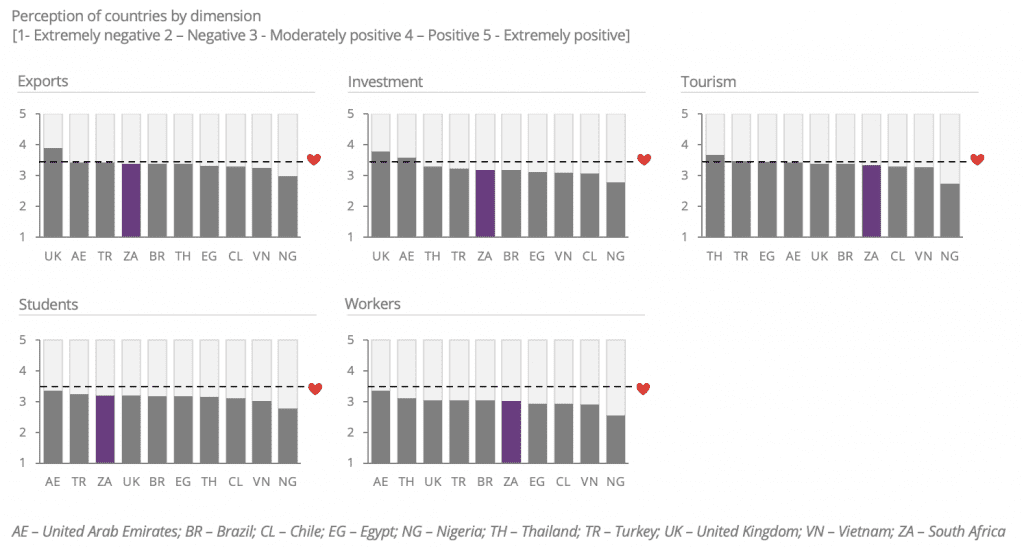
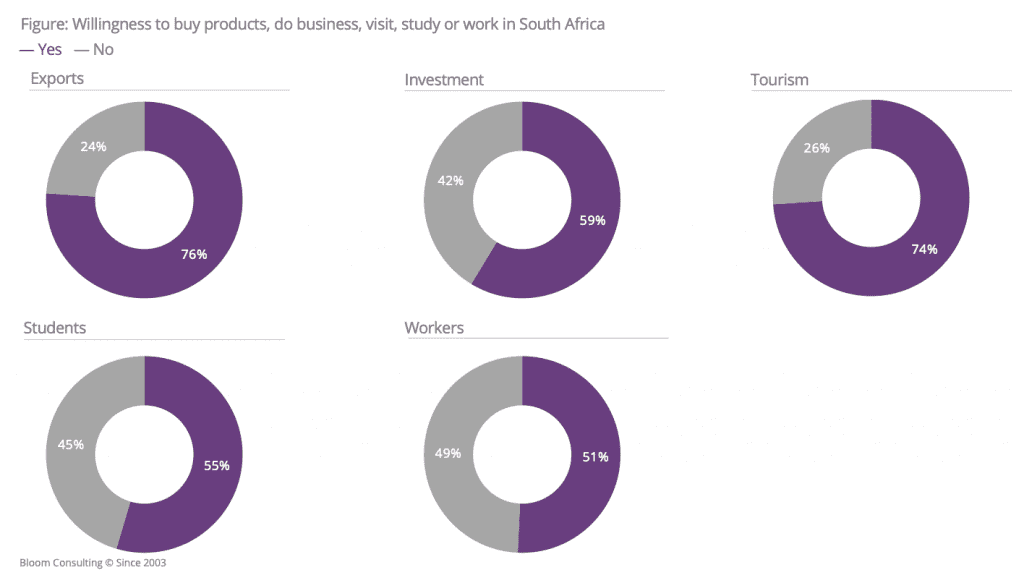
Naturally, a country is a constellation of many different things, not purely good or bad. Thus, South Africa is associated mainly with its diverse Nature, Wildlife and Culture, but also with Unsafety issues. As the study proved, Apartheid continues to be the historic legacy of the Nation Brand. But as Shamiso Hlatshwayo of Brand South Africa noted “our peaceful transition from Apartheid to Democracy, the values espoused by one of the world’s greatest leaders Nelson Mandela, and more so the resilient and dynamic character of our people. No two nations are alike, and there is no other like South Africa.”
The insights from the study ensure Brand South Africa has a detailed overview of key markets that offer the most lucrative pool of potential investors, tourists and potential workers and students, and raise the organisation’s capacity for further strategic initiatives.
Based on the current challenges revealed by the study, Bloom Consulting key recommendation to Brand South Africa mandate was to elaborate a governance model together with other stakeholders from Investment and Tourism institutions. The main goal of Nation Brand institution is not to promote a country, but to manage perceptions, and thus facilitate visitors and FDI attraction. Perception management based on Bloom Consulting’s Experience and Influence approach enabled Brand South Africa with an accurate instrument to track perceptions in specific areas of country development and invest in place branding more efficiently.
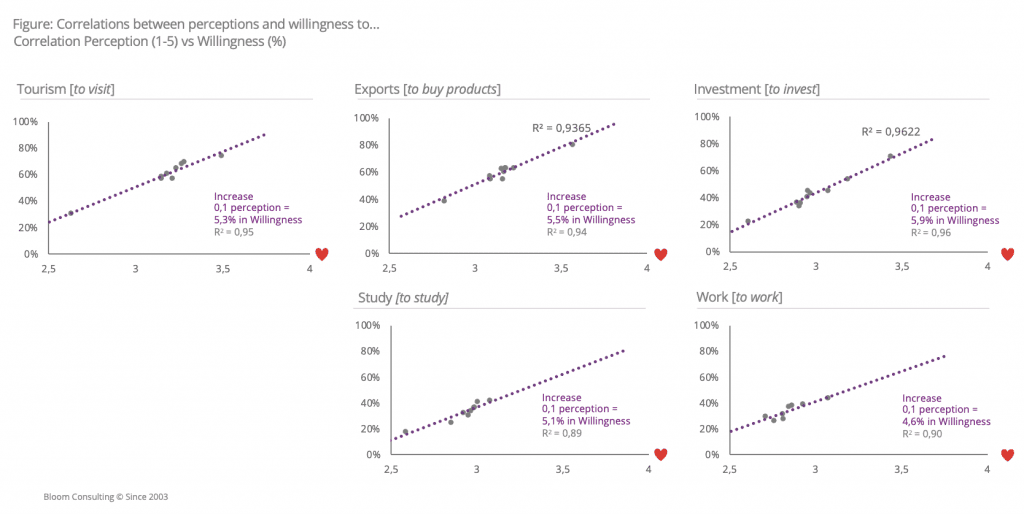
In the future steps of South Africa’s Nation Brand, it is important to focus on active stakeholder engagement and developing a strong Central Idea. To successfully build the desired perception all actions, activities and policies need to be managed and linked together under a comprehensive, consistent Nation and Place Brand strategy. The very first thing to do is to dive deep into a place’s identity in order to define The Central Idea that will lead the country brand and help achieve specific goals more effectively.
New Nation Brand Governance Model (Results)
The most significant result of the study is that it raised awareness about the importance of “strategically working towards shaping perceptions and curating narratives in order to ensure a steady stream of investment appeal and interest, tourism attraction, export expansion and to increase South Africa’s soft power and influence.”
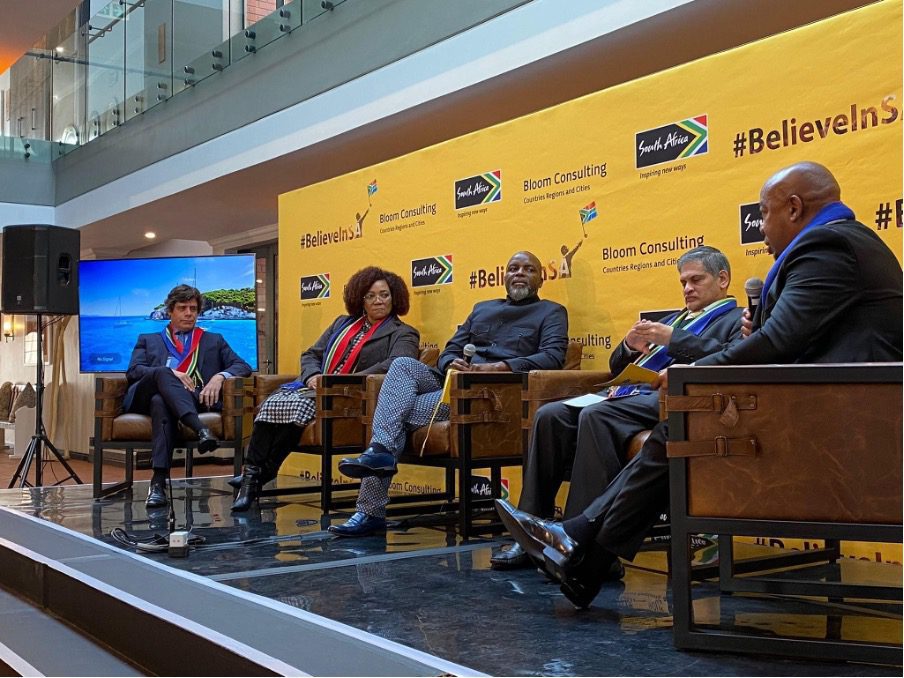
The presentation of the research findings took place in Johannesburg in June 2022 and gathered stakeholders from tourism, investment, and academia. Fairly there were a lot of questions around Nation Branding results — why to invest money in building perceptions? why just not directly invest in marketing activities? Usually organizations prefer to invest into marketing where they can track immediate transactional value in number of visitors and FDI money. However, the long-term success of Nation Brand is measured by perceptions that result in longlisting towards your place. And this was the greatest insight of the discussions — stakeholders started to talk on the importance of the overall nation brand for more efficient work of their areas, whether it’s tourism or FDI attraction, youth development projects, or urban development.
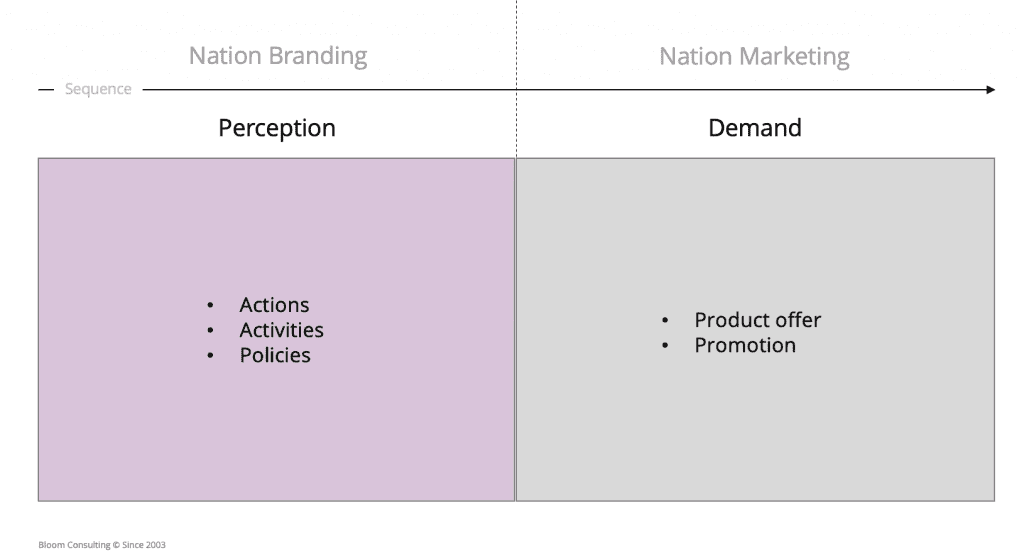
The enthusiastic engagement and discussions raised a lot of salient questions to be answered internally, but also provided solutions the roadmap to align misperception of South Africa, aspiration to work on the Central Idea and to ensure the country’s structural social reforms and economic recovery plan aim the challenges revealed through study.
Published on 09.08.2022.













